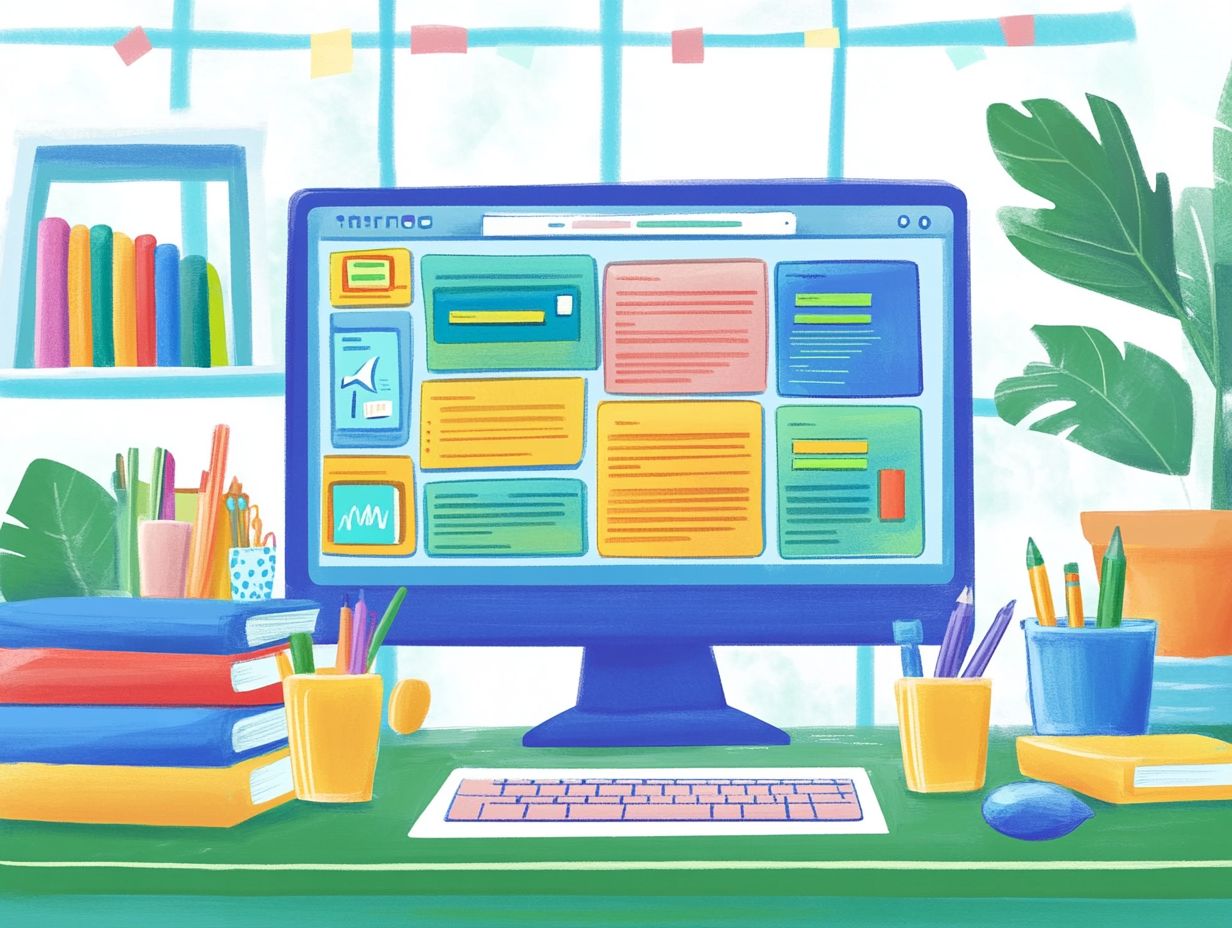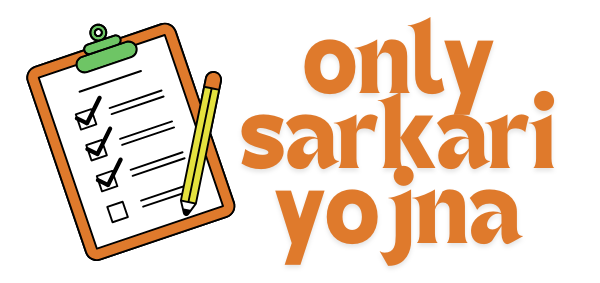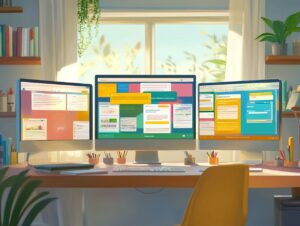In the contemporary digital landscape, educational websites have emerged as essential resources for both students and educators, providing a vast array of information and interactive learning opportunities.
This article examines the benefits of utilizing these platforms, emphasizing their advantages in enhancing the overall learning experience.
Various categories of educational websites are outlined, accompanied by recommendations for selecting the most suitable options and highlighting top sites across different subjects.
Readers will discover effective strategies for maximizing online learning potential and understand how these tools can significantly transform their educational journeys.
What are Educational Websites?

Educational websites serve as digital platforms specifically designed to provide resources and tools for online learning, catering to the needs of students, educators, and lifelong learners.
These platforms prioritize accessibility, ensuring that users from diverse backgrounds can navigate their resources with ease. By incorporating educational technology, they enhance the learning experience through interactive elements such as quizzes and discussions, thereby fostering active participation.
The most effective educational websites acknowledge the varying learning preferences of individuals, offering a range of visual, auditory, and kinesthetic materials tailored to support different learning styles.
Features such as progress tracking and personalized learning paths enable users to effectively manage their educational journeys, making these platforms essential for anyone seeking to enhance their knowledge and skills.
Benefits of Using Educational Websites
The emergence of educational websites has significantly transformed the learning landscape, providing numerous advantages for both students and educators.
These platforms offer access to a wide array of online courses, certification programs, and educational resources, allowing learners to acquire essential skills at their own pace.
Furthermore, educational technology promotes interactive learning and enhances the overall user experience, facilitating greater engagement with academic subjects and supporting individuals in achieving their learning objectives.
Advantages for Students and Teachers
Both students and teachers can derive substantial benefits from educational websites, significantly enhancing the teaching and learning experience. For students, these platforms facilitate increased engagement through interactive courses, gamification in education, and access to a vast array of study materials, thereby aiding in the development of critical thinking skills and improvement in academic performance.
Teachers, in turn, benefit from innovative teaching methodologies, access to digital libraries, and tools for curriculum development, which enable them to create customized lesson plans and refine their instructional design.
Self-paced learning opportunities allow students to advance at their own speed, accommodating diverse learning styles and preferences. Furthermore, with the availability of tutoring services, learners can seek assistance whenever necessary, ensuring a comprehensive understanding of complex concepts.
Conversely, educators have the advantage of resource sharing and the ability to collaborate with colleagues worldwide while utilizing academic support services designed to enhance their teaching strategies. This fosters a dynamic educational environment where both students and teachers can thrive and adapt to the evolving demands of academia.
Types of Educational Websites
Educational websites can be classified into several distinct categories, each addressing specific learning needs and preferences.
These categories include:
- Massive Open Online Courses (MOOCs), such as Coursera and edX, which provide a comprehensive array of courses across various academic subjects.
- Online degree programs that offer a structured pathway to obtaining certifications and diplomas.
- Educational applications and platforms tailored for language learning, STEM education, and professional development.
These resources are integral to contemporary education, allowing learners to access resources at any time and from any location.
Different Categories and Features

The categories of educational websites encompass a wide array of features specifically designed to enhance the learning experience. These platforms range from interactive courses that promote student engagement to educational blogs that provide valuable insights and homework assistance, catering to diverse educational objectives.
Many educational websites also offer online quizzes and assessments, enabling learners to monitor their progress and expand their knowledge base.
Furthermore, these platforms frequently include instructional videos that simplify complex concepts into manageable segments, thereby making learning more accessible and engaging. Peer-to-peer learning opportunities facilitate the exchange of knowledge, collaborative problem-solving, and the development of a deeper understanding of the subject matter.
Community forums serve as discussion spaces, allowing learners to seek advice and share resources, thereby fostering an enriching educational environment. This combination of features not only accommodates various learning styles but also cultivates a supportive network that enhances the overall educational journey.
How to Choose the Right Educational Website
Choosing an appropriate educational website is essential for optimizing the advantages of online learning, and several factors merit careful consideration prior to making a decision.
Prospective learners should assess the range of online courses offered, the platform’s learning management system, and the diversity of educational resources available, ensuring that these elements align with their academic objectives and preferred learning styles.
Furthermore, examining user experience, course reviews, and the availability of support services can yield valuable insights into the overall effectiveness of the platform.
Factors to Consider
When selecting an educational website, several critical factors must be considered to ensure a beneficial online learning experience. These include evaluating the range of academic subjects offered, the comprehensiveness of course catalogs, and the availability of skill assessments and certifications that can enhance one’s professional development.
For instance, a platform that provides a wide array of subjects, encompassing both technical skills such as coding and arts-related courses, encourages learners to explore new interests and broaden their knowledge base. The depth of course catalogs reflects the site’s commitment to quality education; a diverse catalog with detailed course descriptions assists users in identifying programs that align with their career objectives.
Furthermore, the presence of recognized certifications adds legitimacy to educational achievements and may offer a competitive advantage in the job market. Community learning features, including interactive forums where learners can exchange insights and collaborate on projects, foster deeper engagement and enhance information retention.
All these aspects are crucial as they directly contribute to improved learning outcomes and personal growth.
Top Educational Websites for Different Subjects
Numerous educational websites are designed for specific subjects, each providing unique resources and learning experiences.
For example, platforms such as Khan Academy offer free online courses for K-12 subjects, while websites like Coursera and edX present extensive catalogs for higher education, encompassing professional courses across various disciplines.
By exploring these prominent educational websites, learners can identify the resources that align with their academic needs and preferences.
List of Recommended Websites

The following is a list of recommended educational websites that cater to a wide range of learning needs and interests.
Whether individuals aim to enhance their skills for career advancement or seek to acquire new knowledge for personal growth, these platforms provide tailored solutions that accommodate various preferences.
For example, Udacity emphasizes technology-focused courses that incorporate real-world projects, making it particularly suitable for those aspiring to enter fields such as data science or artificial intelligence.
Conversely, edX partners with esteemed universities to offer high-quality courses that often include certificates of completion, which can serve as valuable additions to one’s resume.
Furthermore, Khan Academy provides interactive practice exercises that make mastering subjects such as mathematics and science both engaging and effective.
In addition, Coursera features comprehensive learning paths, enabling users to delve deeply into their chosen subjects through expert-led lectures and peer interactions.
Each of these websites enhances the educational experience by connecting users with valuable tools and resources designed to support their learning journey.
Tips for Maximizing Learning from Educational Websites
To maximize the benefits of educational websites, students should implement a range of strategies that enhance their engagement and retention of knowledge.
This includes actively participating in interactive courses, employing effective study techniques to manage their time efficiently, and consistently assessing their progress through online quizzes and educational games.
By utilizing these online resources, learners can enhance their overall academic performance and gain a deeper understanding of complex subjects.
Effective Strategies for Utilizing Online Resources
Implementing effective strategies for utilizing online resources can significantly enhance learning outcomes. Students are encouraged to explore interactive learning opportunities available through educational websites, such as virtual classrooms and gamification in education, to promote engagement and motivation.
The use of educational technology tools improves the learning experience by facilitating easier access to materials, promoting collaboration, and enabling knowledge transfer.
To further enrich their educational journey, individuals can utilize a variety of online platforms that offer educational podcasts and instructional videos, which provide flexible options for learning on-the-go. These resources present valuable insights from experts and can effectively clarify complex topics in an engaging manner.
Engaging with community learning platforms can facilitate peer-to-peer interactions, allowing learners to collaborate on projects or participate in discussions that deepen their understanding.
By integrating these digital tools into their study routines, students not only enhance their academic skills but also cultivate essential 21st-century competencies that are required in today’s fast-paced world.
Frequently Asked Questions
What are the top educational websites?

Some of the top educational websites include Khan Academy, Coursera, Udemy, edX, TED-Ed, and Codecademy.
What subjects do these top educational websites cover?
These websites cover a wide range of subjects and topics, including math, science, programming, languages, history, business, and more. Some even offer courses on personal development and self-improvement.
Are these websites free to use?
Most of the top educational websites offer free access to their content, but some may require a subscription or payment for certain courses or features. It’s best to check the specific website for more information.
Can I earn certificates or degrees from these websites?
Some websites, such as Coursera and edX, offer the option to earn certificates or degrees by completing certain courses or programs. However, these may require a fee or additional requirements. Again, it’s best to check the specific website for details.
Can I access these websites on my mobile device?
Most of these top educational websites have mobile-friendly versions or apps that you can download for easy access on your phone or tablet. This allows for learning on-the-go and at your convenience.
What makes these websites stand out from traditional education?
These websites offer a more flexible and self-paced learning experience, often with a wide range of topics and resources to choose from. They also tend to be more affordable and accessible to a global audience. Additionally, many of them also offer interactive and engaging learning methods, such as videos, quizzes, and discussions.




